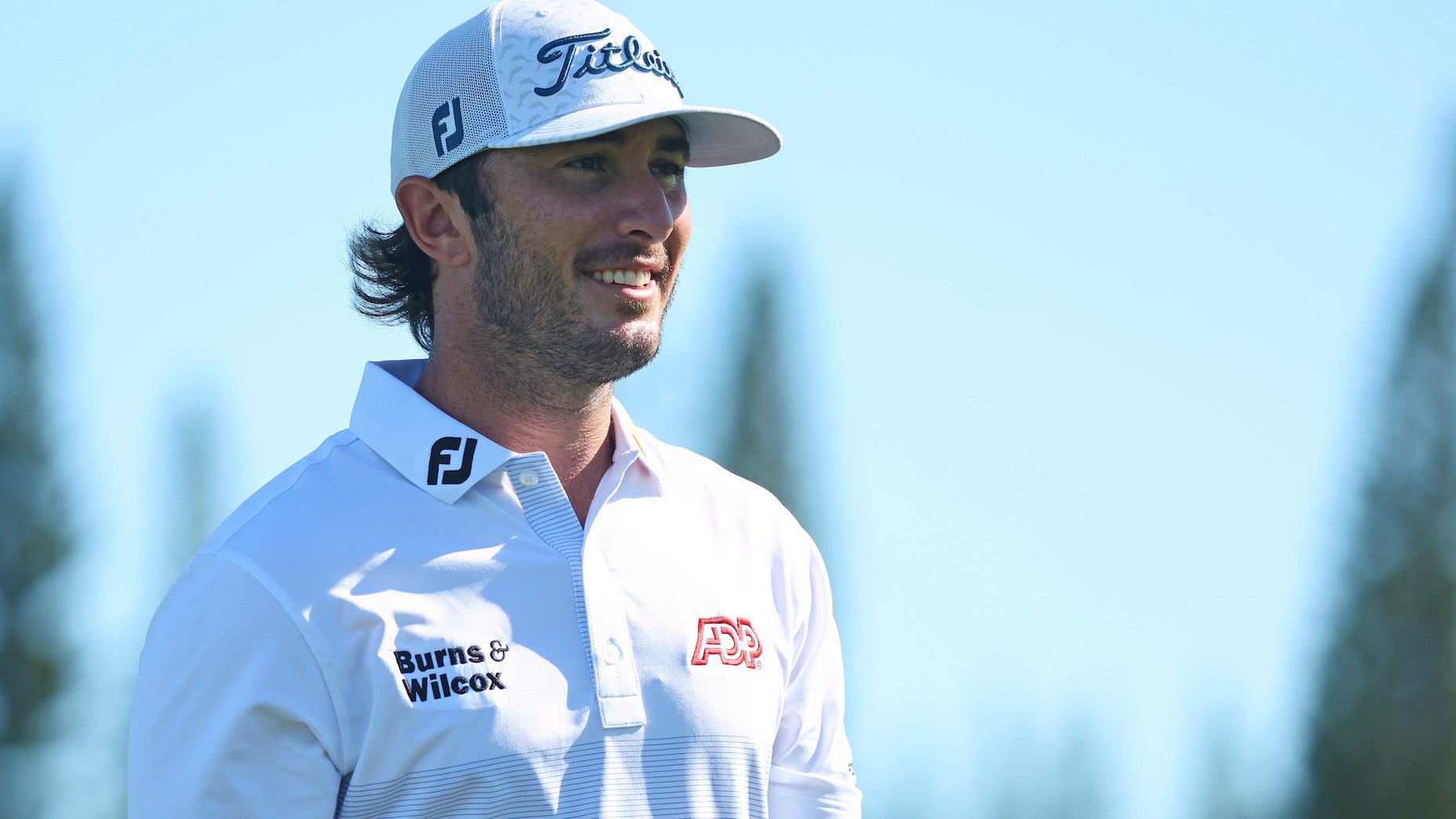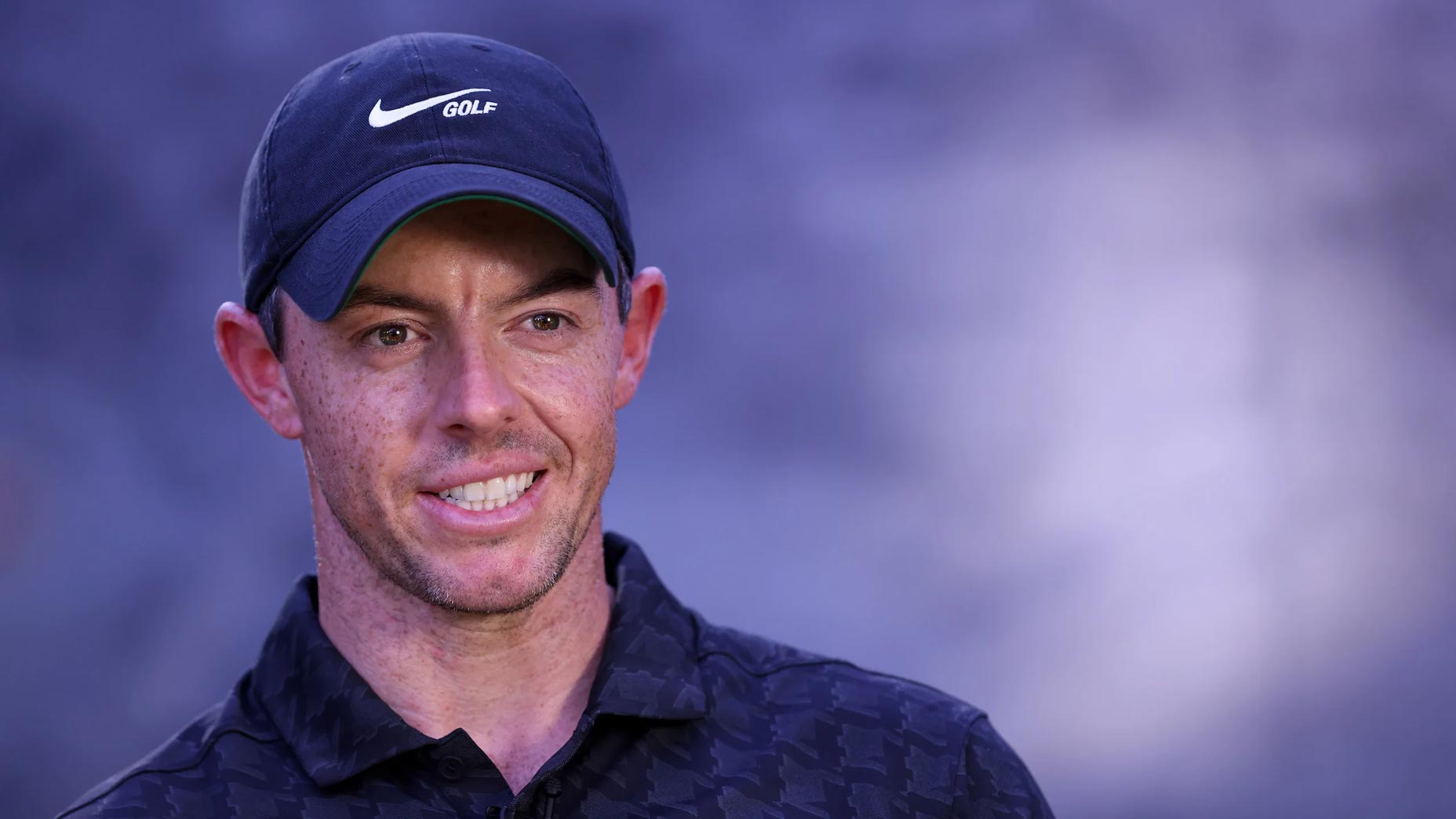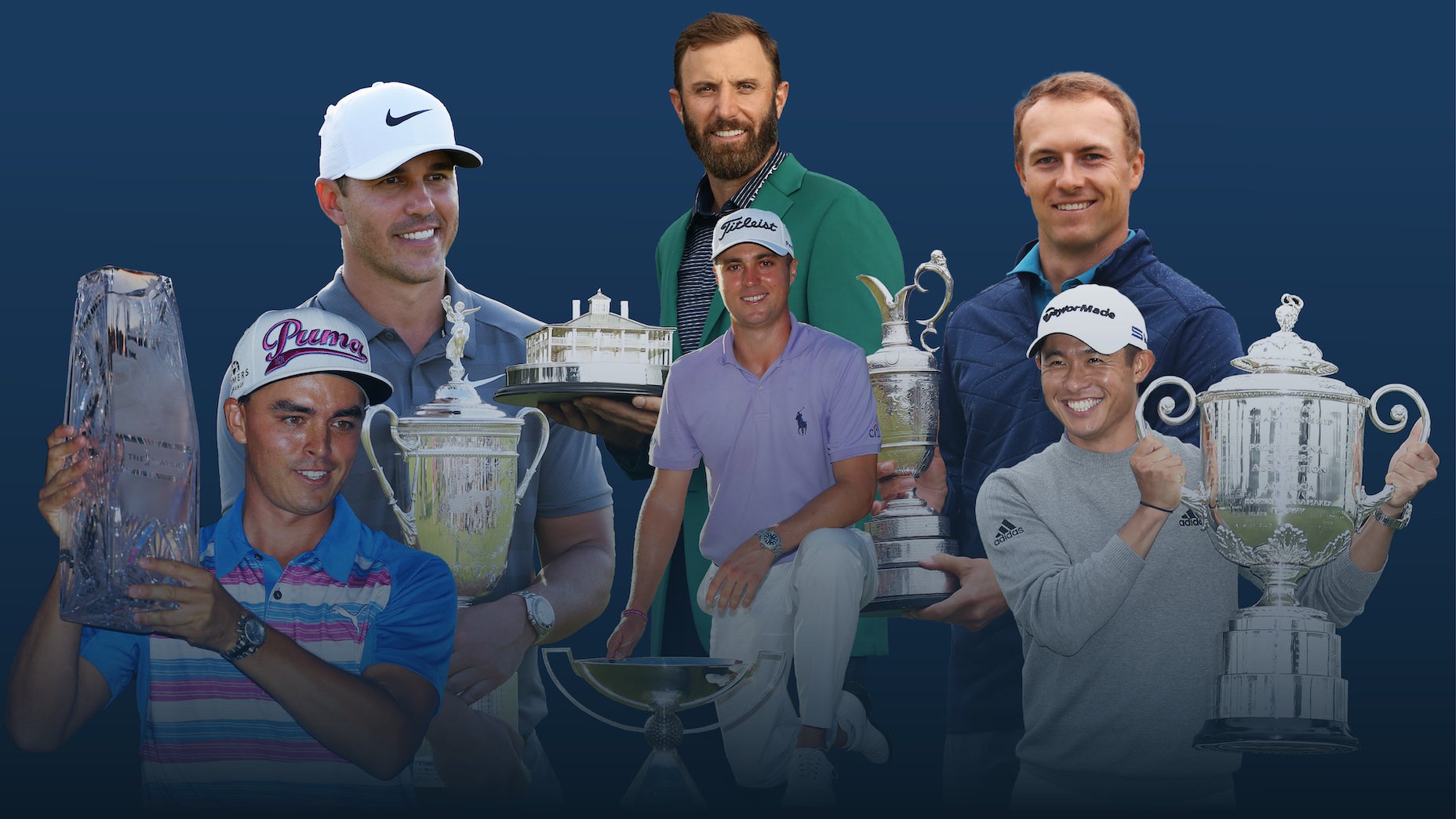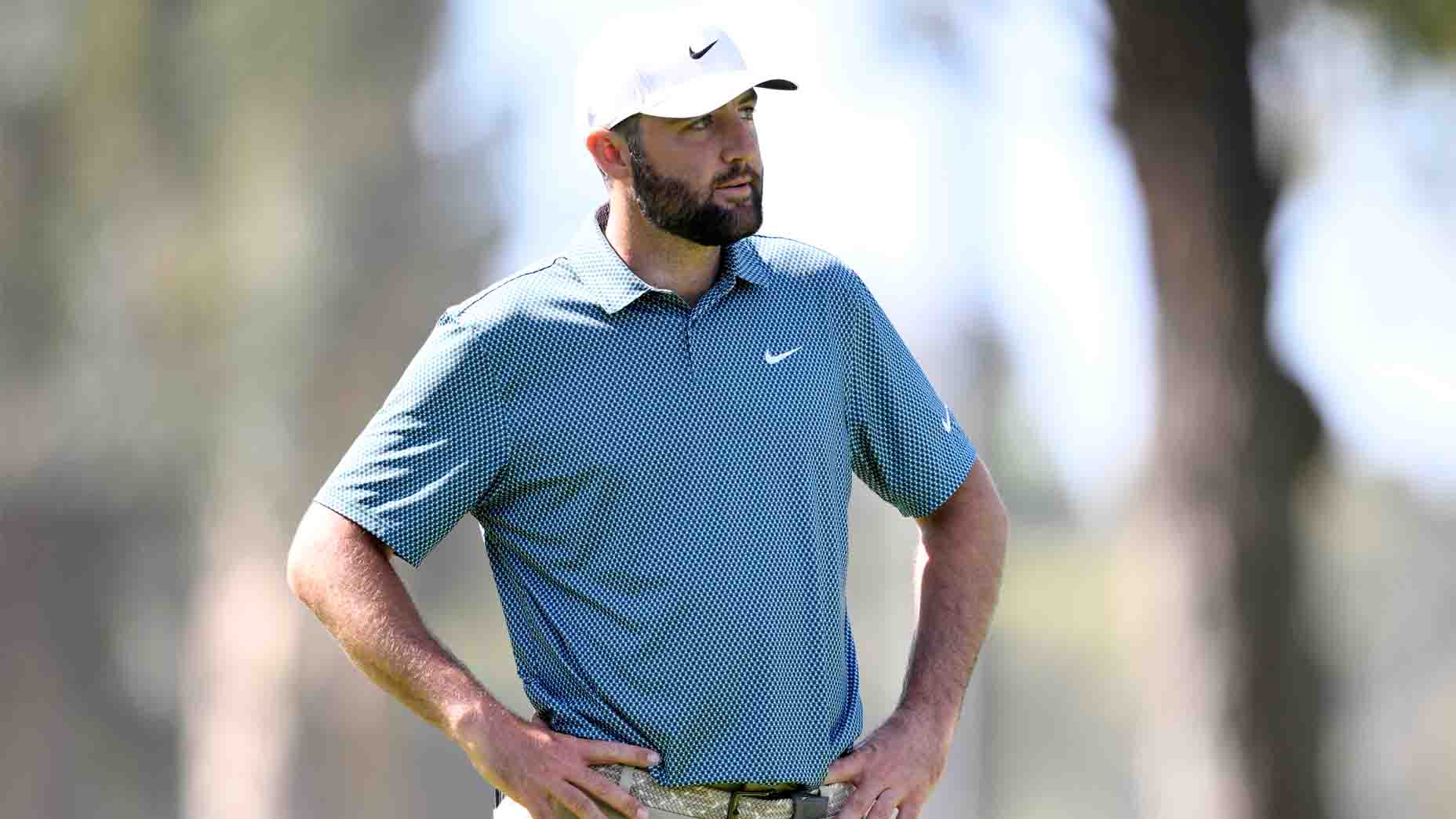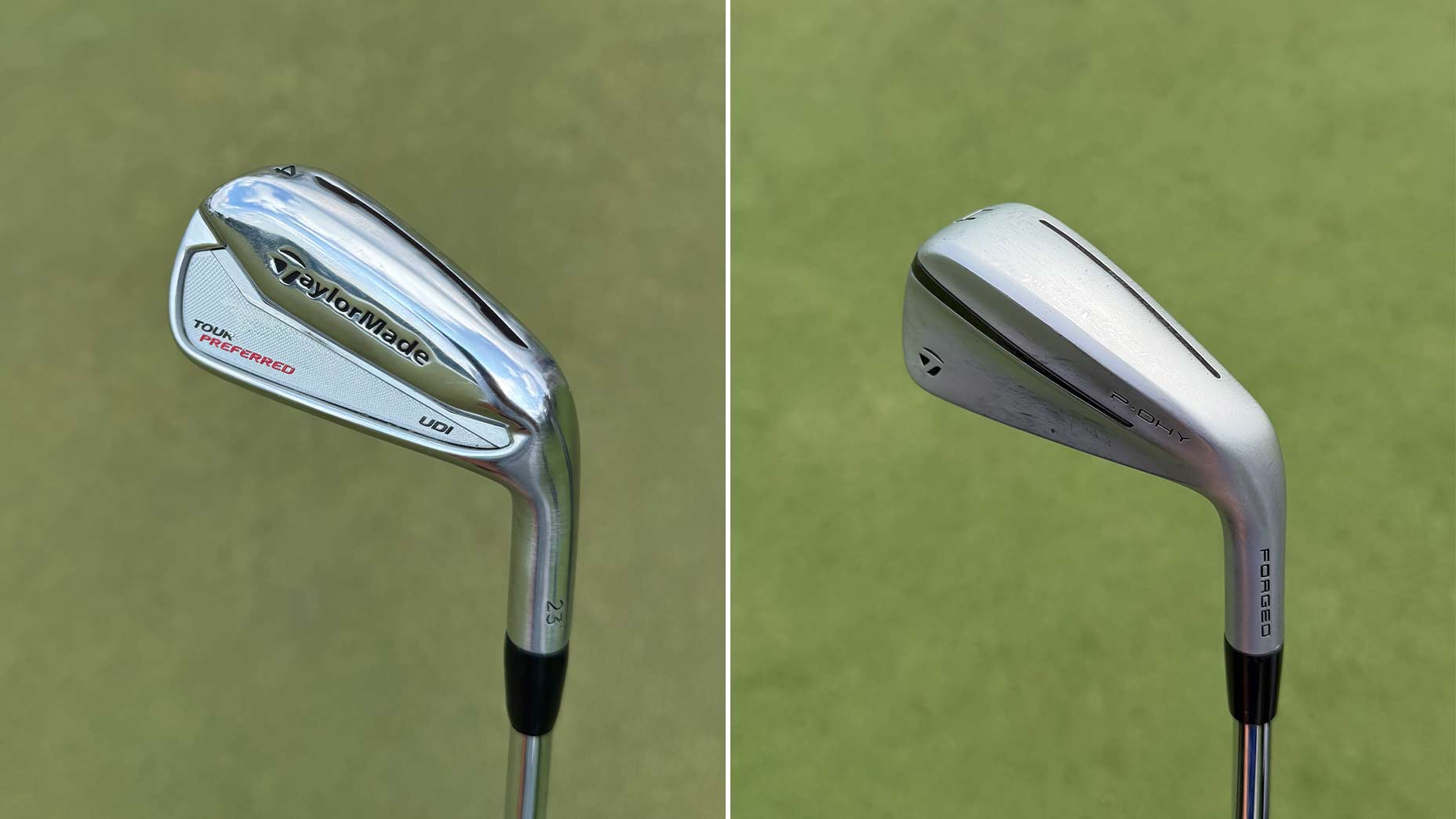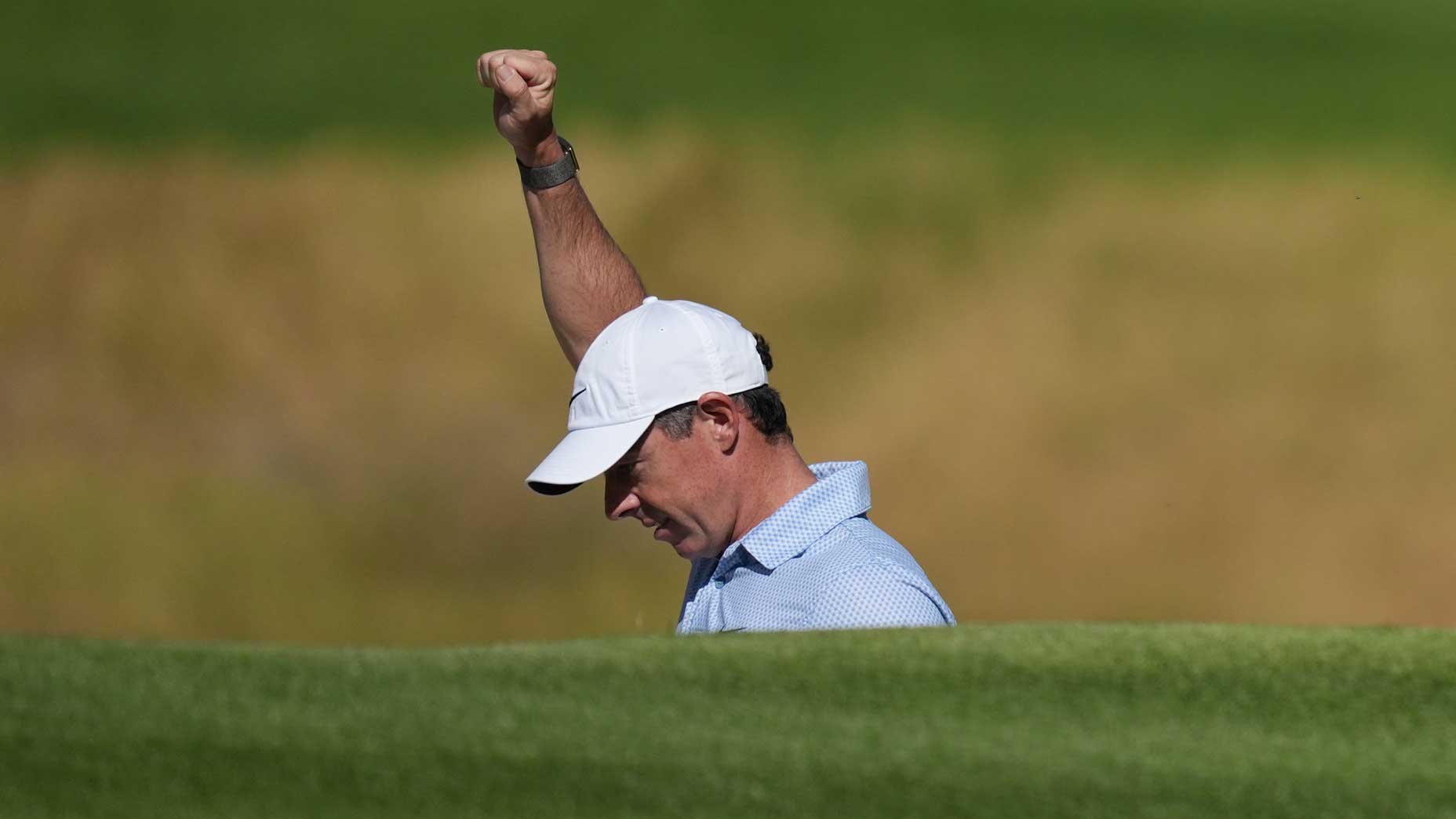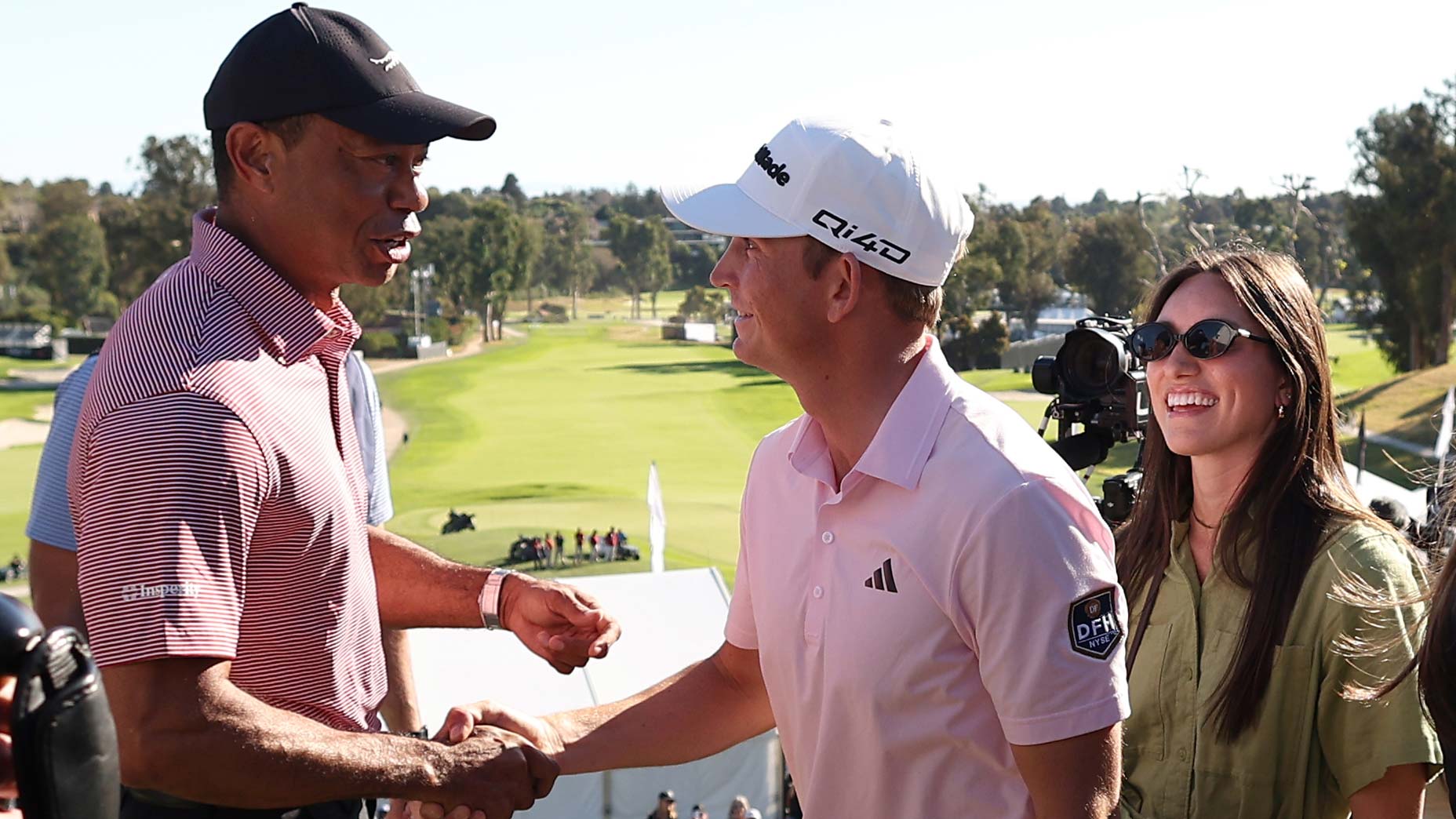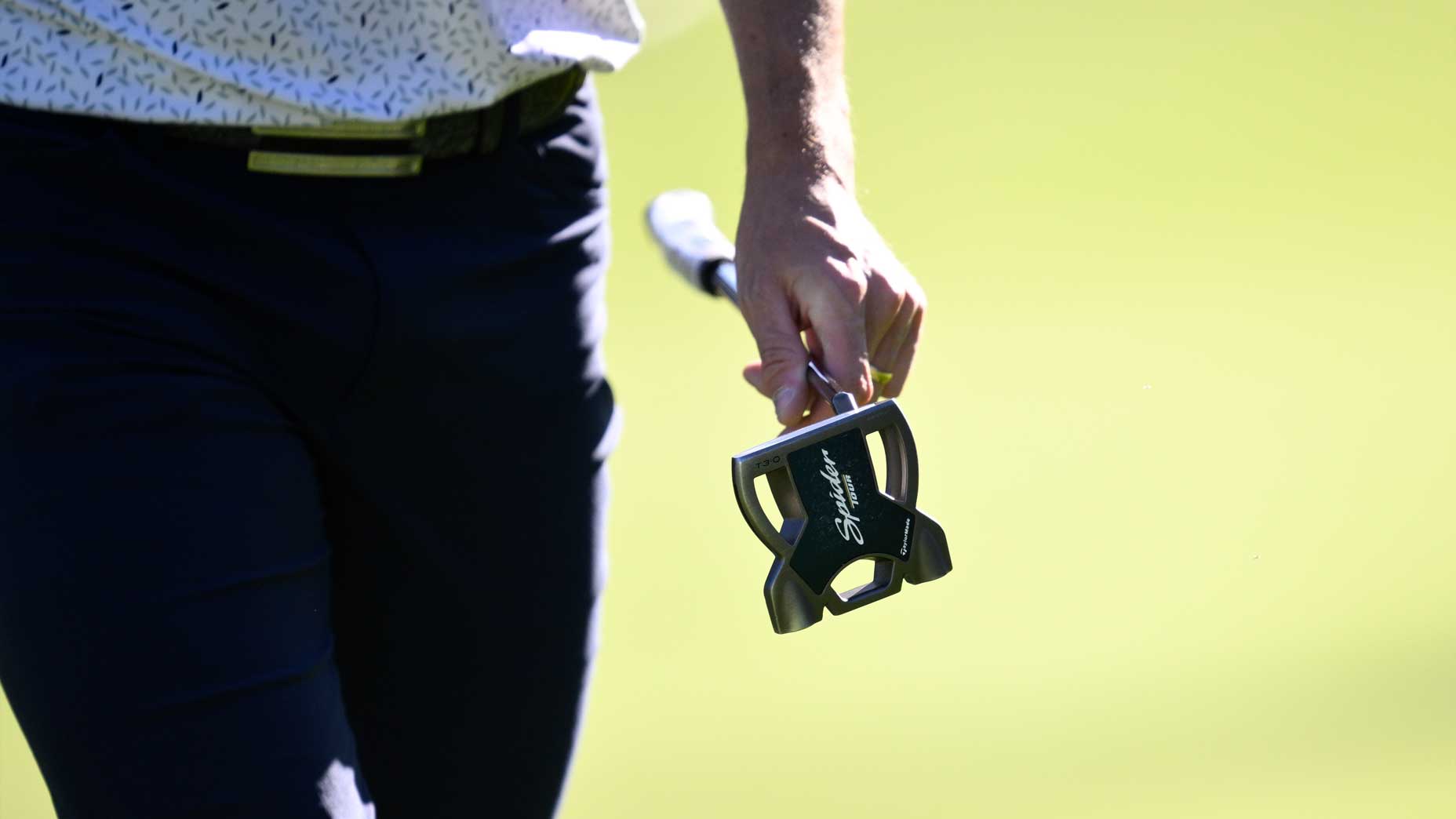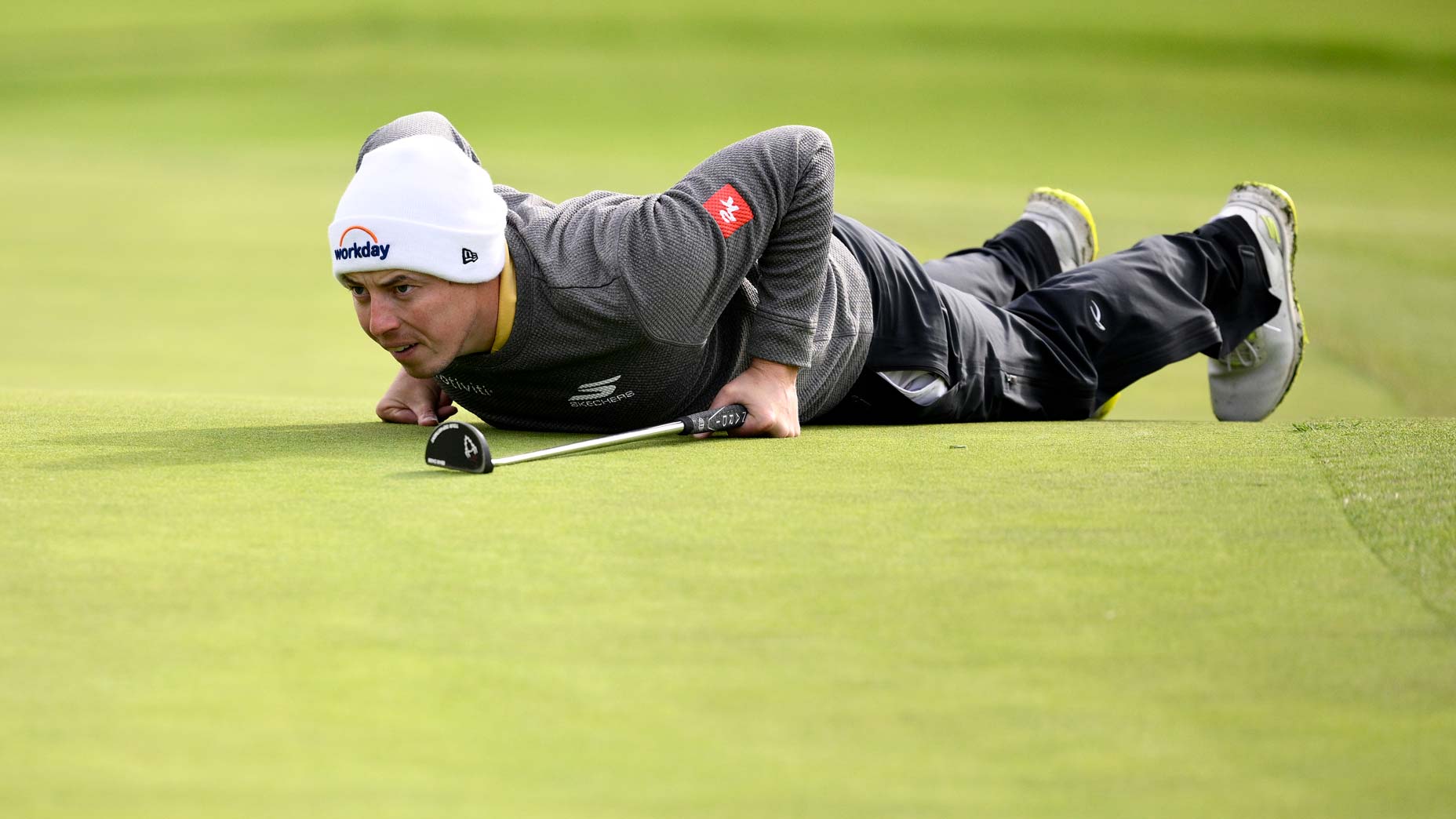A year ago, Max Homa stared down a three-foot putt with massive consequences.
A stellar iron shot into the 72nd hole at Riviera Country Club had him on the brink of a career-changing victory. Then he missed it.
But the sting didn’t last for long. Homa held off Tony Finau on the second playoff hole. Minutes later, his childhood hero Tiger Woods handed him the trophy. Now, a year later, Home returns to the Genesis Invitational as defending champion.
I caught up with him for a lengthy chat to talk about winning, feeling awkward, becoming a Netflix star dealing with Twitter fame and much more.
Dylan Dethier: For someone who doesn’t know anything about you as a golfer, how would you summarize the arc of your career?
Max Homa: It looks something like a Magic Mountain rollercoaster. In college I started low as a freshman and went real high. Then it stayed up there for a year and then went real low. And then it’s just been more of like a steady ascent for the last three years, I’d say.
DD: When you look at yourself now compared to three years ago, what’s the biggest difference?
MH: The biggest difference is probably my mentality and my understanding of me as a golfer. And as a person, too. Obviously some physical stuff, too, but the most dramatic change is just that I understand how I play golf now and I play courses based off that knowledge.
DD: So how do you play golf now? What does that mean, specifically?
MH: Strategy-wise, I drive the ball really well now. Some of that has been a physical change, but because I drive the ball really well and I’m a really good short-iron player, I try to use that to my advantage the best I can. So if I’m not swinging the club perfectly on a par-5, I’m a little bit more accepting of laying up and playing to my strengths. It’s a matter of not forcing hero-golf. Everybody out here, when your “A” game is on, it’s easy. But when it’s B, C, D golf, to figure out how to get the ball in the hole and grind out a week, that’s a different skill.
DD: How do you learn that? Is that just from being around other guys? Is it from just doing it a lot?
MH: Doing it a lot. Also, beating your head against the wall and failing at it for a while.
Eventually you look at the top, the best players in the world, and you start being a little more introspective about your game. Miniscule changes. Looking at like, “How do I get a half-shot better?” And then you start getting less into the mechanics and more into, like, “What am I doing when I’m on the golf course that I could shave off here and there?” Over the course of a week you don’t notice but when you look back at your season it’s like, astronomical.
The cool part of it for me is that you don’t see the change. I think that’s the fun part. After a year if you went back to everything you did at the beginning versus the end, you’d see the change, but you would never see it in a week. It’s very easy any week to make a little putting change and be like, “Oh, I figured out my putting.” But the next week you’ll probably go back to putting below-average and go chase it again. So I guess the fun part is that you just put in a program and then have some faith.
DD: How does winning change your mindset?
MH: I’ve always struggled with confidence, especially when I think about how I’m out literally by against the best in the world at golf. I always kind of struggle with that and winning it so much easier to believe.
I know what it takes to win, but I think the biggest thing for me was that the first time I won, I didn’t play the best week of my life and I won. I think that’s what I say for a lot of the guys who haven’t won yet: you have to be a lot less perfect than you’d think. Before I was like, “Okay, I have to hit it perfect, I have to chip it great, I have to drive it perfect, I have to make every putt. But I’ve won three different times. And yeah, yeah, all three times I’ve done something a little bit better than normal but nothing like, drastically better.
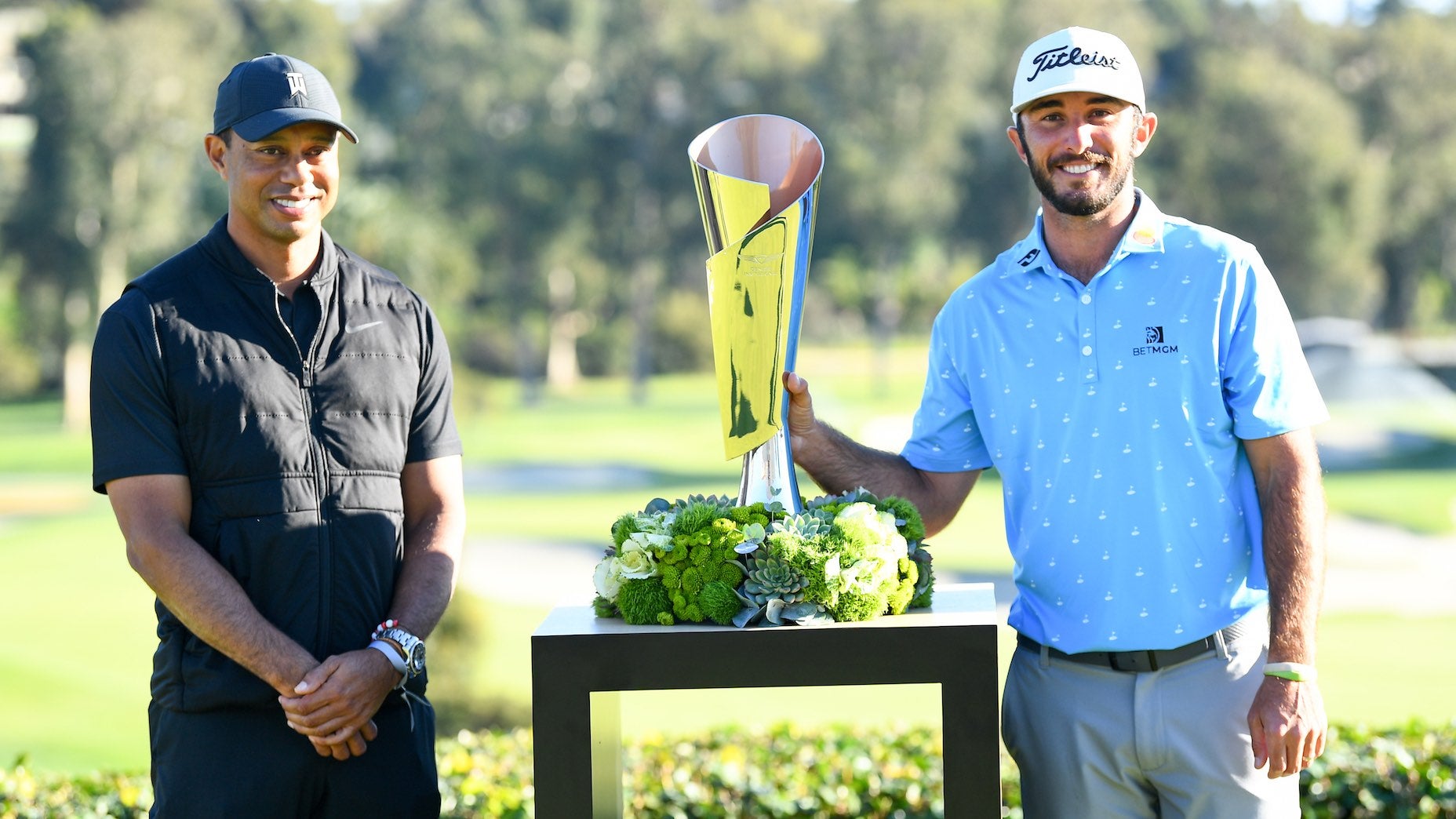
DD: That sounds like a different version of knowing your game better. Like, accepting that you don’t have to be perfect.
MH: Yes, that’s definitely it. And obviously, when your game gets good enough, your not-perfect golf becomes adequate. And realizing that takes a lot of stress off the three days prior to the tournament. I used to try to chase perfect — the best feels, the perfect swing thought. Now we have a system to get ready, we tee it up, we go play, we see if we can get the ball in the hole fast.
DD: So as a winner, do you feel tangibly different when you show up to tournaments?
MH: After Wells Fargo [Homa’s first Tour win] I didn’t feel dramatically different; I think I felt relief after that one, like, “I did it, it’s off my back, I’ve got exemptions, I can play what I want to play.
After winning in L.A., because of the field strength and because it was my second time and because I was playing better golf for the year prior, that win changed things. Like, now if I show up at any event and feel like I’m not good enough, I’m wrong.
I can actually go back to that event and say, “All right, that’s about as good a feeling that you get, minus a major.” I played golf, I won and it did change things. I definitely feel like I walk around every week with a lot more confidence since.
Rory McIlroy exclusive Q&A: On changing coaches, chasing happiness and Tiger WoodsBy: Dylan Dethier
DD: You’ve always been a guy that’s had a lot of self-awareness, more so than some of your peers, but last year it seemed like you made a conscious shift to more of an alpha mentality. Like, “I am going to be one of the best golfers in the world.” Not just, you know, the relatable everyman golfer. Is that close to reality?
MH: Yeah. I’ve always had that mindset, but obviously when you get kicked in the teeth on this tour it gets harder. I’ve never been able to be blindly confident, I need to see results. And since Wells Fargo in 2019, I’ve seen a lot of really good results and I’ve been in the mix. And now anytime I waver on that self-esteem issue it’s like, I have tangible evidence. I’m wrong to waver. So the alpha mentality is not my natural state, but when I’m in the ropes and I’m playing anybody, I don’t feel less than. Still, maybe sometimes prior to an event, in the days and weeks prior.
DD: What was your personality like as a kid? Quiet? Loud? Funny?
MH: Never loud but I always thought I was pretty funny [laughing]. I was pretty quiet, and I honestly credit Eric, my roommate in college. He taught me how to never be awkward or feel awkward.
DD: So what’s the key? How do you never feel awkward?
MH: You’re only feeling awkward if you let yourself feel awkward. So when you say something dumb, remember: nobody else really cares that much. It’s only you that cares. And Eric was like, the most confident guy, everybody likes him and enjoys being around him. And ever since I got to know him, I’ve just been a lot less shy and more open to saying what I would say in my head instead of just shoving that down. Just say it!
It took a while to learn that if people don’t like who I am, that’s actually not my problem. I don’t need to be friends with every single person in the world.
DD: Are you friends with a lot of guys on tour?
MH: I think so. Everyone out here is cool, honestly. Although I guess there’s only a small handful of guys I think I’d be good friends with off the course, if we didn’t all work together. But that doesn’t mean they’re not great guys; our interests are a little different. But I do have some buddies out here. Like, Talor Gooch, Joel Dahmen, just good people with a lot of interests that are aligned, easy people to get along with. Mark Hubbard, I’ve always loved him. And I would say most of the guys out here I’m friendly with. There’s very few not-cool dudes out here.
DD: You had a popular podcast [Get a Grip with Max Homa and Shane Bacon] and you stop doing it. Why?
MH: Multiple reasons. Shane selfishly got a job and had to move three hours off my time zone. Scheduling just got really difficult for us. And he’s got a kid, he has a very busy job and then, while I like having interests outside of golf, I’m happiest, truly happiest, when I’m playing good golf. And I didn’t want to risk that.
When I was playing well, I’d go do a podcast, whatever, It’s fine. You rehash why you played well. But if you play bad, it’s like, I’ve already lived it. I will dwell on it and live through it again. I’ll talk to my coach about it, my caddie about it, my wife about it. And then to go on a podcast and have to rehash it, even if we’re not talking specifically about it, I’m rethinking everything I did. And that just felt, like, a little excessive to me. Literally actively telling myself to remember all the bad s— that happened? That is not ideal for your brain.
DD: What are you hoping for out of this Netflix documentary?
MH: Honestly, I know it’s a cliché, and some people use this phrase differently but I really do hope it grows the game of golf. I watched Drive to Survive, I think it’s amazing and I watch F1 now and I feel like I understand it. And I hope that other people get that feeling with golf.
And like, I don’t know what F1 sickos thought about the Netflix show. Like, maybe they thought it was not great and not informative. But for someone who was not a fan prior, like, it was phenomenal. And I hope it takes a lot of a lot of little things innate to us, how we’re kind of a traveling circus, that I think the casual fan will enjoy seeing.
But for the most part, I just hope that more and more people can see what professional golf is really like, I hope they get into watching golf and honestly, mostly I hope they get into playing golf. The one benefit of this Covid time is that golf has boomed, and it’s been really fun getting to talk to a bunch of my friends who never were that into it who love it now.
Because I think as you get to be an adult, golf is really good for your livelihood, for your peace of mind, I think it’s cool to see that when people start to play. So I hope that the show brings out more new golfers.
DD: There are a lot of rivalries in the F1 show. Do you think there are more rivalries than we know about on the PGA Tour?
MH: [Laughing] No, I don’t think there are very many — or even any — rivalries, for the most part. Yeah, everyone out here knows how hard it is to do anything. I mean, you look at the one of the greatest rivalries of my lifetime in any sport, Tiger-Phil, and they played together like a handful of times. Yeah. So it’s so hard out here to have an actual rivalry.
But I mean, you definitely have people you want to beat more. But what’s funny about this game is you want to beat the people who you’re closest with. Like, I want to beat Talor [Gooch]. Watching his name at No. 1 in the FedEx Cup, like, I’m really proud of him, happy for him, and I hope he keeps it up. I just wish he would finish No. 2. So those people push you more but I would never call that a rivalry because like, I want the best for him, and I know he feels the same about me. So it’s hard to have a whole lot of animosity out here.
Netflix reveals star-studded cast of PGA Tour pros for new docuseriesBy: Dylan Dethier
DD: Being active on social media, how do you deal with people having opinions about you all the time?
MH: I definitely think it’s a learning curve. It took me a while. I feel like in the last year or so I definitely started to turn off that thought of like, “one guy’s being mean” or whatever. First off, I’ve had more success. And secondly because, thanks to Big Cat from Barstool, people kept talking about how many cuts I miss even though I think I missed one cut in like, six months. It’s more laughable now. But when you’re struggling, it’s tough.
The deeper way to put it is this: if I’m cool with myself, you can say whatever you want about me and I can kind of know the truth, you know? So if I miss a cut by one and I was in three divots or something, I don’t need to go explain that to anybody. I know what that means. I don’t need some random dude on social media to get under my skin. I was never great at that, but I’m getting better. Still, I’ve honestly always really enjoyed social media. I enjoy what it was made for. I know some people turn it into not the greatest place in the world. But you can use it the right way and then really enjoy your time off it, too.
DD: Is there anyone that’s really funny in real life that that’s on tour that you think would be good on Twitter?
MH: He’s already good on social media but Harold Varner is hilarious, like, one of the best personalities out there. For people who aren’t on social media, Henrik Stenson is one of the driest, funniest people you’ll ever meet. He’s hilarious. Even Dufner is pretty funny when he actually talks, he’s a good storyteller. JT’s funny, too. And there’s definitely a lot of guys out here that are decently funny. But there’s also a lot of guys out Tour who aren’t. Everybody seems to have a somewhat decent personality, luckily.
DD: Last question: Why did you shave your mustache for your first Netflix interview?
MH: [Long sigh] My wife, she made me very self-conscious. Yesterday morning I woke up really early, I had to drive to L.A. And I don’t even know, she must have, like, had it in a dream. But as I’m walking out the door, she said, “Are you sure you want to have a mustache for this Netflix thing?” And I was like, well, I’m not so sure anymore!
So no Netflix mustache. So far.
